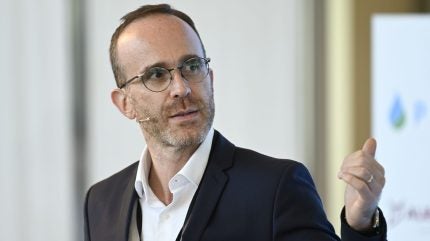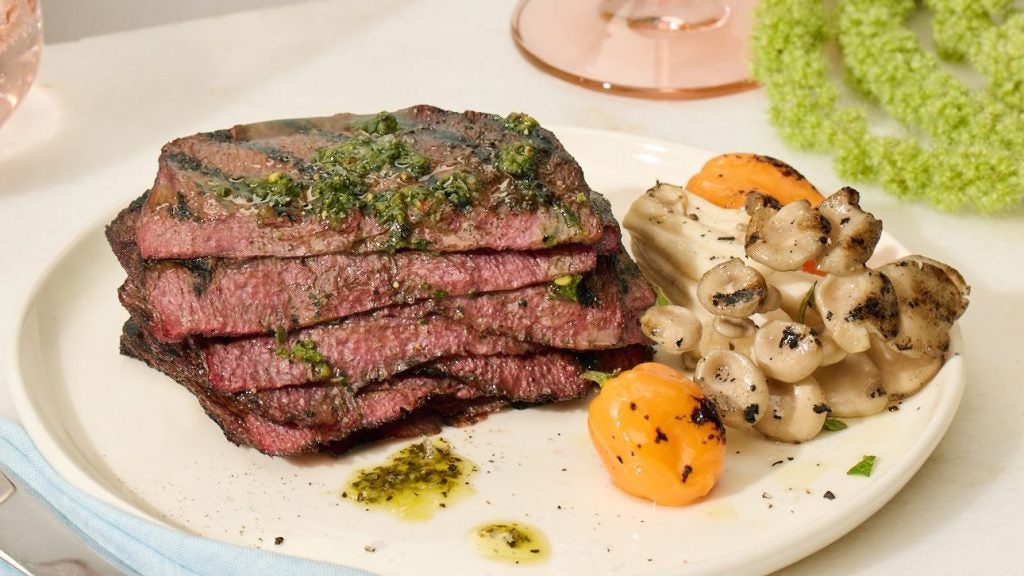
Established in 2017, cultivated-meat organization Aleph Farms is ultimately on the verge of readily launching its first item as the business sets a path to reach success by the end of 2028
A pilot production facility is already in position in its home market of Israel where Aleph Farms obtained governing authorization around 2 years ago for its Petit Steak meat cuts. Various other countries, nonetheless, such as target locations in the UK, Switzerland and the United States, are still considering up applications.

Discover B 2 B Advertising And Marketing That Carries Out
Combine company knowledge and editorial excellence to reach involved experts throughout 36 leading media systems.
However, Aleph Farms has actually just authorized an agreement with The Cultured Hub, a joint endeavor with economic backer Migros Industrie, Givaudan, and Bühler Group, to establish its initial European manufacturing base in Kemptthal, Zurich.
Founder and CEO Didier Toubia talks about Aleph Farms’ plans and goals with Just Food’s Simon Harvey.
Simon Harvey (SH): What are the wider manufacturing plans?
Didier Toubia (DT): We’re developing a method to establish the Swiss operations as a center for Europe and then increasing to the UK and potentially Germany and Austria.
We have a submitted our regulatory applications in Switzerland and the UK. We are additionally dealing with authorizations in Asia– Singapore and Thailand– another location where we mean to create in the following number of years.
SH: What’s the status with the first product launch?
DT: We’re currently finishing the transfer of an optimised manufacturing platform right into the pilot facility in Israel– the very same innovation system we plan to carry out in Switzerland and Europe.
We get on track to scale up manufacturing and to possibly release in the following 6 months.
We changed the business plans at the start of 2023 We raised a lot of cash in 2021 when the objective was to expand and scale up rapidly, with a concentrate on the US.
We started servicing a large center in Pennsylvania however we saw the macroeconomic setting altering throughout the 2nd fifty percent of 2022 We made a decision at the start of’ 23 to as opposed to spending massively in capex, in equipment and establishing production centers in the United States, to invest even more time optimising our production procedure, lowering our expenses, and improving the scalability of the production platform, which is what we’ve done.
We determined to concentrate initially on Israel and Singapore, and afterwards we started the prepare for Switzerland and the UK. We anticipate by the end of’ 28 to reach EBITDA productivity.
SH: You’re discussing earnings however how is the business earning money when the initial item hasn’t been presented?
DT: We simply obtained a complete economic evaluation from an independent event in Switzerland that the current innovation we have, without any further developments or technical threats, can result in favorable EBITDA and to profitability at the intermediate production scale. And after that to larger margins and higher earnings at bigger scale.
SH: Is Aleph Farms making any money?
DT: We’re not offering yet and we’re not yet making money. We have spent the last a couple of years on cost decrease and on scalability enhancements.
SH: Just how much cash has Aleph Farms elevated thus far and will you require more ahead of commercialisation?
DT: We elevated a little bit greater than $ 140 m. We’re currently in the process of settling a round we began at the end of in 2015. We currently elevated component of the cash and we’re presently servicing finalising the complete investment. We’re increasing $ 20 -$ 25 m and we already shut $ 7 5 m.
SH: Has the money all been utilized on R&D and getting the modern technology set up?
DT: Yes, and on transferring this technology to a business production facility and establishing the operations in advance of introducing the item. It is the facility in Israel and the facility in Switzerland.
SH: Who’s mosting likely to fund the building and construction of the plant in Kemptthal?
DT: It’s an existing plant and the cash has been invested by the proprietors of The Cultured Hub. We simply completed the first training phase for them to begin implementing our manufacturing procedure and we must finish the technology transfer and the set-up of this commercial center throughout 2026
Aleph Farms has an asset-light approach, growing ourselves with third-party partnerships and leveraging existing centers of third parties and not straight owning our plants.
SH: When are you hoping to start manufacturing in Switzerland?
DT: Production must start around the end of 2026 It will probably take one year to finish the tech transfer, the initial range up and to obtain the approval for the center, the appointing, and get it all set for business production.

SH: The Switzerland center will generate the Petit Steaks?
DT: Our Petit Steak is our initial item, which are pieces of cultivated beef cuts, a crossbreed item that includes animal cells right into a plant-based matrix. Soy is the plant-based component.
The purpose of Petit Steak is to target the mega fads for healthy proteins and for healthy indulgence within the flexitarian sector. The goal is not to change meat however to diversify selections and offer a special value recommendation to an extremely distinct sector of the marketplace.
SH: When manufacturing begins in Switzerland, is that planned to provide various other markets in Europe?
DT: We do intend to broaden from Switzerland right into added markets. This plant does not have significant capability, so we mean to additional increase our manufacturing capacity yet initial plant, along with The Cultured Hub.
We are considering alternatives to set up some manufacturing ability in the UK as well, and possibly in other European countries.
SH: You have also obtained governing approval in the UK, Switzerland and Singapore. What is the status?
DT: We are working with it. It’s hard to give timelines because it’s never making the effort we anticipate. I wish we can obtain this clearance soon.
SH: What sales channels are you targeting given dining establishments have tended to be the main screening grounds for grown meat items?
DT: We intend to launch initially in restaurants and foodservice electrical outlets.
SH: Retail is mosting likely to come a lot later after that?
DT: Yes, I believe so.
SH: In the past, you claimed Aleph Farms had actually gotten in a manufacturing partnership with BBGI and Fermbox Biography in Thailand. Is that still around?
DT: We’re presently developing our strategy in 2 different geographies. One is Europe, where we plan to have a larger global base, and with the first concentrate on Switzerland and the UK, possibly Germany.
The other instructions we are taking is South East Asia, starting with Singapore, where we anticipate to get clearance soon, and from Singapore increasing right into Thailand. Those plans remain legitimate.
SH: BBGI and Fermbox Bio are on standby after that? You formed a production arrangement which will begin when you obtain approval?
DT: That’s right. We’re trying to find the authorization in Singapore before we spend more resources because area. We could have a small pilot line in Singapore but we mean to proce at bigger range in Thailand.
SH: Aleph Farms likewise entered partnerships with BRF in Brazil, Thai Union and Mitsubishi in Japan. Are they all similar production collaborations?
DT: We’re developing a consortium in South East Asia with various types of companions which are corresponding per other, so we can build stronger traction in the area.
Mitsubishi is proactively working with us. We’ve done some marketing research with each other and some testing. The present concentrate on Japan is the policy and we haven’t yet submitted in Japan because the regulative body is still in the process of finalising the advice for companies.
We are taking into consideration manufacturing in Japan in the mid-term. As far as Asia is concerned, we will certainly begin with South East Asia and after that in the mid- to lasting broaden right into Japan, might be South Korea. To have one hub in South East Asia and one more in eastern Asia. Brazil is longer term, the same as Japan.
SH: What are the main challenges for the cultivated-meat industry– persuading regulators, governments or customers, for instance?
DT: In Europe, there’s a wide group of nations which are investing in the space and investing in study and facilities, funding gives for business too, like in the United States, like in numerous Oriental nations and Center Eastern countries. In Asia– Singapore, Thailand, Malaysia, Australia, Japan, Hong Kong and China– they are all investing and creating programs for executing cultivated meat. In general, there’s solid governmental assistance.
The guideline requires time even if it’s a brand-new subject. Each company is using somewhat different modern technologies, elevating different sorts of questions. Regulation is a limiter despite the fact that it’s moving in the best direction.
The other limiter for the market is funding. There had actually been a great deal of money bought the space in between 2020 and 2022, then in 2023 and 2024 it was almost difficult to elevate money. That is now returning a little bit.
Aleph Farms has spent time and quite a great deal of sources lowering the costs, enhancing the scalability of the production procedure, boosting the items, improving the positioning and the marketplace fit. That has actually constructed a much more durable foundation for lasting and profitable development.
SH: Besides cultivated meat, plant-based meat has had a little a tough time in the previous number of years. Does that have any type of implications in terms of understandings?
DT: The truth the plant-based classification hasn’t delivered on its promise is raising questions regarding the general strategy for corresponding healthy proteins. I assume the plant-based group has actually oversold its capacity.
The advantage of cultivated meat is we can give a higher quality product in terms of taste, flavour, cooking homes and dietary advantages because we include actual animal cells into the product.
We have 5 or 6 active ingredients in our first item with a concentrate on all-natural components. We have nothing like methylcellulose or those types of chemical ingredients, no masking representatives, no man-made flavouring. Our product has a much reduced degree of handling and fewer ingredients, while being greater in top quality.
I believe that cultivated meat and using cells will most likely take the whole corresponding healthy protein method to the following level.
SH: Do you assume consumers are still going to require some convincing due to the fact that it’s a brand-new technology?
DT: It’s not a matter of innovation. It’s more a matter of establishing the ideal product and marketing it at the appropriate cost to the right consumer. Petit Steak is not meant to change existing cuts however rather to build a different category to focus on health and wellness and nourishment.
We’re targeting the more youthful sector of the population, millennials and listed below, that are seeking to boost protein consumption while reducing calories and fat intake.
We are leveraging a mega fad in the marketplace, which has been sped up in the United States by GLP- 1 drugs.
We’re really trying to establish an one-of-a-kind worth proposition out there to make the product attractive for specific segments. We’re not trying to replace meat and we do not intend to release a product that every person will certainly acquire.
We see it a lot more as a brand-new choice, a new category, which is increasing the alternatives for the typical consumer.
We could sell at a somewhat greater rate when we release since we’ll have small amounts. However the idea would be to really swiftly reach rate parity and to make certain we can drive a lucrative and a sustainable business with no superior prices.